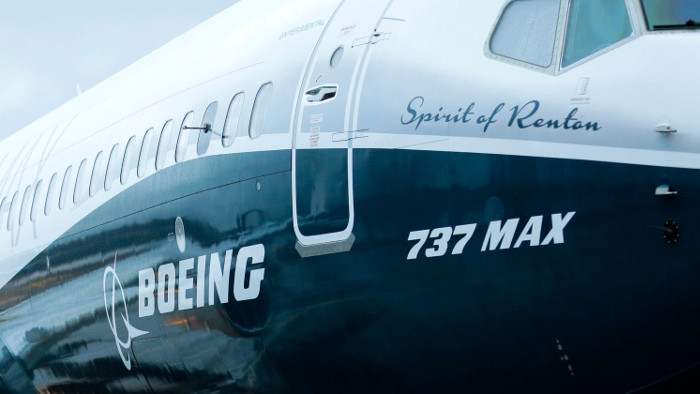The Chief Executive Officer of Boeing, Dennis Muilenburg, has admitted there was vital information that was not communicated to all Boeing clients, pilots and regulators that could have prevented the Boeing 737 Max 8 crashes involving Ethiopian Airlines and Lion Air, which killed all passengers onboard.
Boeing had initially admitted being at fault before Muilenberg distanced the company from blame after investigation report faulted Boeing’s software, MCAS.
Now, the CEO has admitted a communication gap and mistake in the implementation of the angle of attack. He also said the company has confidence in the safety of the plane.
Recall that the Lion Air plane had crashed in October 2018, killing everybody onboard. The Ethiopian Airlines plane that crashed in March 2019 equally killed everyone. The two crashes happened within the space of six months, leading to a global ban.
“The implementation of this angle of attack alert was a mistake. Our communication on that was not what it should have been. We’re confident in the fundamental safety of the airplane.”
He also apologised to families who lost loved ones in the crashes, stating the company feels terrible about both accidents.
ALSO READ: Again, IPOB’s sit-at-home order flops in southeast
According to findings by investigators, the MCAS (Maneuvering Characteristics Augmentation System) pointed the plane sharply downward based on a faulty sensor reading, hindering the pilots’ effort to control the aircraft after takeoff, according to preliminary crash investigations.
The sensors provide data to the MCAS, a flight handling system connected to the deadly crashes of Lion Air and Ethiopian Airlines MAXs. However, the signal which was meant to signal the pilots about a disagreement between the plane’s “angle of attack” sensors was deactivated by Boeing without proper communication.
The disagreement between the sensors was discovered by Boeing in 2017, even though it was never communicated to the United States’ Federal Aviation Administration until thirteen months later after the Lion Air crash.
The Boeing 737-Max model will be out of service for at least 10 to 12 weeks, the head of the International Air Transport Association (IATA), Alexandre de Juniac disclosed. International regulators have met to design and coordinate the process Boeing is expected to undergo before receiving approval to begin distribution and operation of the Max model.
Boeing prefers to compensate its clients through services rather than in cash. Earlier during an investor conference in New York, Muilenburg said Boeing might offer assistance by tweaking plane delivery schedules or offering additional training or services. He, however, said in some cases, cash might be offered.

 Entertainment6 days ago
Entertainment6 days ago
 Health1 week ago
Health1 week ago
 Health4 days ago
Health4 days ago
 Football1 week ago
Football1 week ago
 Football1 week ago
Football1 week ago
 Crime5 days ago
Crime5 days ago
 Education6 days ago
Education6 days ago
 Health6 days ago
Health6 days ago

